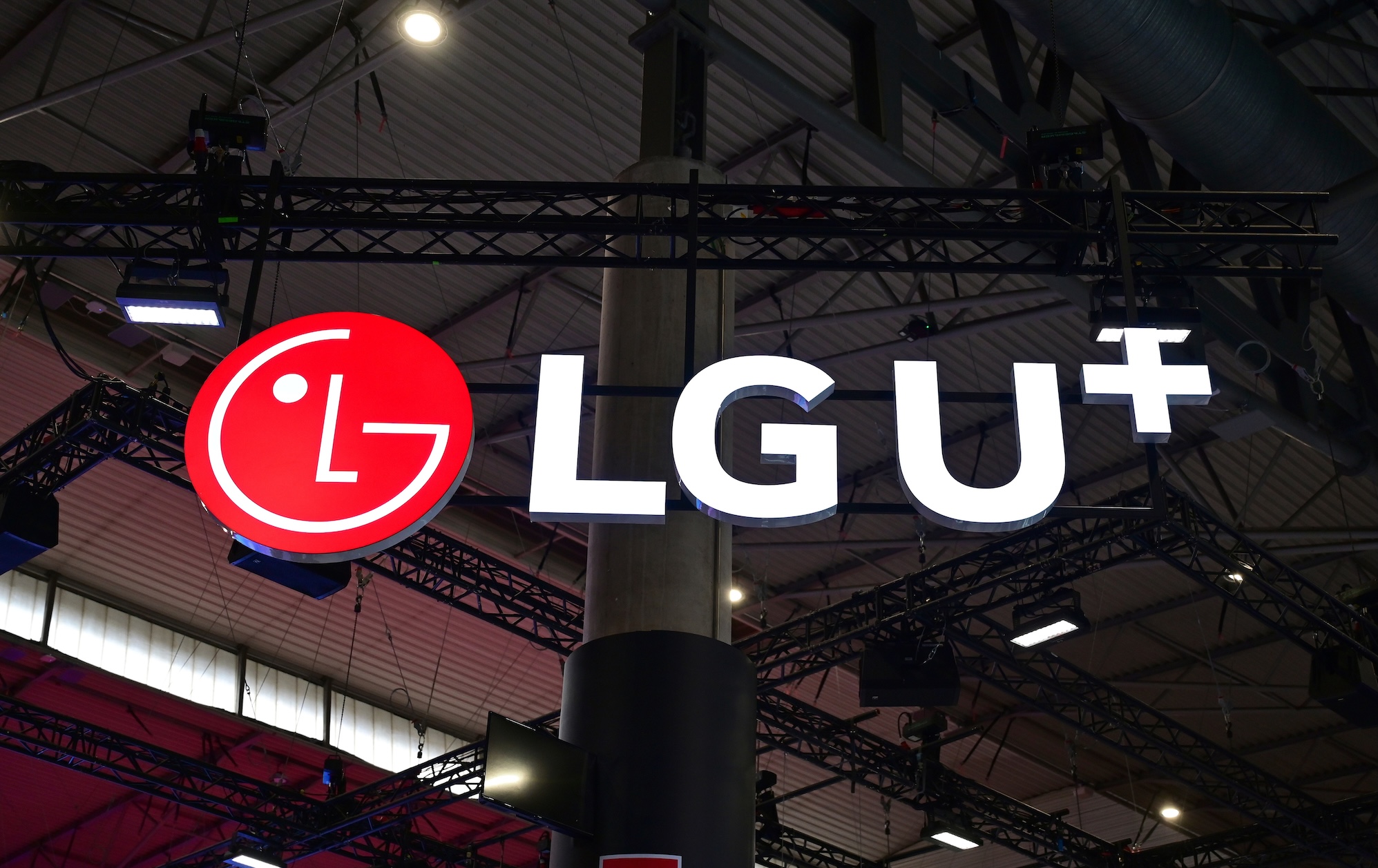
LG Uplus, a prominent telecommunications provider in South Korea, has officially acknowledged reporting a suspected data breach to the Korea Internet & Security Agency (KISA), the nation’s principal cybersecurity regulatory body. This confirmation places LG Uplus as the third major South Korean telecom operator to face a significant cybersecurity incident within a recent six-month span, raising considerable concerns about the resilience of the country’s critical digital infrastructure. The company has not yet provided a timeframe for when the findings of its internal investigation will be made public.
A Troubling Pattern Emerges
The disclosure from LG Uplus follows a series of similar reports from its primary competitors, SK Telecom and KT Telecom. The Ministry of Science and ICT, which oversees the nation’s digital policies, has confirmed that its investigations into both KT and LG Uplus, initiated last month, are still underway. This ongoing scrutiny is particularly urgent amidst speculation that these companies may have experienced cyberattacks bearing similarities to the prior breach affecting SK Telecom, suggesting a potentially coordinated or related campaign targeting South Korea’s vital communications networks. This succession of incidents paints a concerning picture for a nation renowned globally for its technological prowess and digital connectivity.
South Korea’s Hyper-Connected Landscape
South Korea stands as a global leader in digital innovation and internet penetration, boasting some of the fastest broadband speeds and highest smartphone adoption rates worldwide. This hyper-connectivity forms the bedrock of its economy and societal structure, underpinning everything from advanced manufacturing and e-commerce to smart cities and ubiquitous mobile services. The "big three" telecommunications providers—SK Telecom, KT Telecom, and LG Uplus—are not merely service providers; they are integral components of the national infrastructure, facilitating nearly every aspect of daily life for millions of citizens and businesses. Their extensive networks carry sensitive personal data, financial transactions, and critical communications, making them exceptionally attractive targets for a range of malicious actors, from financially motivated cybercriminals to state-sponsored entities. Any compromise to these networks, therefore, carries profound implications for national security, economic stability, and public trust.
Chronology of Compromises
The current wave of cybersecurity incidents began to surface earlier this year. SK Telecom, the largest mobile carrier, confirmed a data breach in May, although specific details regarding the nature and scale of the compromise were not extensively publicized. This initial event served as a stark reminder of the persistent threats facing even the most sophisticated digital environments.
Following SK Telecom, KT Telecom reported a significant security lapse in September. This incident was particularly alarming as it involved the exposure of user data after unauthorized micro base stations were reportedly connected to its network. These illicit devices could potentially intercept communications or siphon off sensitive information, highlighting a critical vulnerability in physical network security and supply chain integrity. The Ministry of Science and ICT subsequently launched an investigation into KT’s breach, underscoring the government’s concern.
For LG Uplus, the path to public acknowledgment has been more protracted. Reports indicate that KISA first identified potential signs of a hack in July, subsequently requesting LG Uplus to file a formal report. However, in August, the telecom division of LG initially denied any indications of a breach, even as its competitor, KT, was grappling with its own confirmed security issues. This initial denial, followed by a later confirmation, raises questions about internal detection mechanisms and transparency protocols within the company. Adding to the gravity of the situation, the renowned hacking magazine Phrack claimed approximately two months prior to LG Uplus’s official report that hackers, allegedly from China or North Korea, had infiltrated and stolen data from close to 9,000 LG Uplus servers. While the claims made by Phrack require independent verification, they introduce a geopolitical dimension to the ongoing investigations, suggesting potential state-sponsored cyber espionage or sabotage efforts. KISA has refrained from commenting on specific details of the ongoing investigations.
Repercussions: Erosion of Trust and Economic Fallout
The successive breaches at South Korea’s leading telecom providers are poised to have far-reaching consequences. On a societal level, these incidents can significantly erode public trust in the institutions that manage their most sensitive digital information. In a country where digital services are deeply integrated into daily routines, from mobile payments to healthcare records, a perception of insecurity can lead to widespread anxiety and a reluctance to fully embrace new technologies. Consumers may question the adequacy of data protection measures and demand greater accountability from both corporations and regulators.
Economically, the impact can be substantial. Beyond the immediate costs associated with forensic investigations, system remediation, and enhanced security infrastructure, companies face potential regulatory fines, legal liabilities, and demands for customer compensation. Reputational damage can also translate into customer churn and a loss of market share in a highly competitive sector. For a nation that prides itself on its technological leadership, these cybersecurity vulnerabilities could also deter foreign investment and impact its standing as a secure digital hub. Furthermore, if the alleged involvement of state-sponsored actors is confirmed, it elevates the incidents from mere criminal acts to matters of national security, necessitating a robust and coordinated governmental response.
Unpacking Systemic Vulnerabilities
The frequent occurrence of high-profile cyberattacks across various sectors in South Korea – affecting not only telecoms but also credit card companies, tech startups, and government agencies – points to deeper systemic issues within the nation’s cybersecurity framework. Experts have highlighted two primary contributing factors: a fragmented cybersecurity system and a critical shortage of skilled professionals.
A "fragmented cybersecurity system" often implies a lack of centralized authority or a unified strategic vision across different governmental agencies and private sector entities. This can lead to disjointed efforts, inconsistent standards, and challenges in timely information sharing regarding emerging threats. When each entity operates in its own silo, the collective defense against sophisticated, adaptive adversaries is weakened. There may be overlapping responsibilities without clear lines of command, or conversely, gaps in coverage where no single agency takes full ownership. This fragmentation can hinder rapid response capabilities and the implementation of holistic, nation-wide cybersecurity initiatives.
Coupled with this is a significant "shortage of experts." Cybersecurity is a rapidly evolving field, requiring highly specialized skills in areas such as threat intelligence, incident response, penetration testing, and secure software development. While South Korea invests heavily in technology, attracting and retaining top cybersecurity talent remains a global challenge. A deficit of skilled professionals means that organizations may struggle to proactively identify vulnerabilities, implement robust defenses, and effectively respond to breaches when they occur. This talent gap can lead to an over-reliance on external consultants or, worse, leave critical systems inadequately protected. The combination of these two factors creates an environment where even technologically advanced nations can find themselves vulnerable to persistent cyber threats.
Geopolitical Shadows and Threat Actors
The Phrack magazine’s allegations regarding Chinese or North Korean involvement in the LG Uplus breach introduce a serious geopolitical dimension to these incidents. Both nations have been frequently implicated in cyber espionage and attacks targeting South Korean interests, ranging from data theft to critical infrastructure disruption. North Korea, in particular, is known for its sophisticated cyber warfare capabilities, often employing them for intelligence gathering, financial gain, and political leverage. Chinese state-sponsored groups have also been linked to extensive intellectual property theft and espionage campaigns globally.
While these claims remain unverified by official South Korean sources, the possibility of state-sponsored activity transforms these breaches from mere corporate security failures into matters of national security. Such attacks aim not just to steal data but potentially to sow discord, disrupt critical services, or gather intelligence that could be used in future geopolitical maneuvering. The South Korean government and its intelligence agencies are undoubtedly considering these possibilities as part of their ongoing investigations, highlighting the complex and high-stakes nature of modern cyber warfare.
Charting a Path Forward: A Call for Unified Defense
The recurring nature of these high-profile breaches serves as a critical wake-up call for South Korea. Addressing these systemic vulnerabilities will require a multi-pronged approach. Firstly, there is an urgent need to consolidate and streamline the nation’s cybersecurity governance, potentially through a more centralized command structure that facilitates better coordination and information sharing between government agencies and private sector entities, particularly those managing critical infrastructure. Developing a unified national cybersecurity strategy with clear roles and responsibilities could significantly enhance defensive capabilities.
Secondly, substantial investment in cybersecurity education and workforce development is paramount. This includes fostering a robust talent pipeline from universities to professional training programs, offering competitive incentives to retain experts, and promoting continuous learning to keep pace with evolving threats. Collaborative efforts between academia, industry, and government to establish centers of excellence and research initiatives could also help bridge the talent gap.
Furthermore, strengthening international partnerships for threat intelligence sharing and joint cyber defense exercises could provide South Korea with valuable insights and capabilities to counter sophisticated state-sponsored attacks. As investigations continue into the full extent and attribution of these recent incidents, the imperative for South Korea is clear: to move beyond reactive measures and build a truly resilient, unified, and proactive national cybersecurity posture capable of safeguarding its hyper-connected future.






